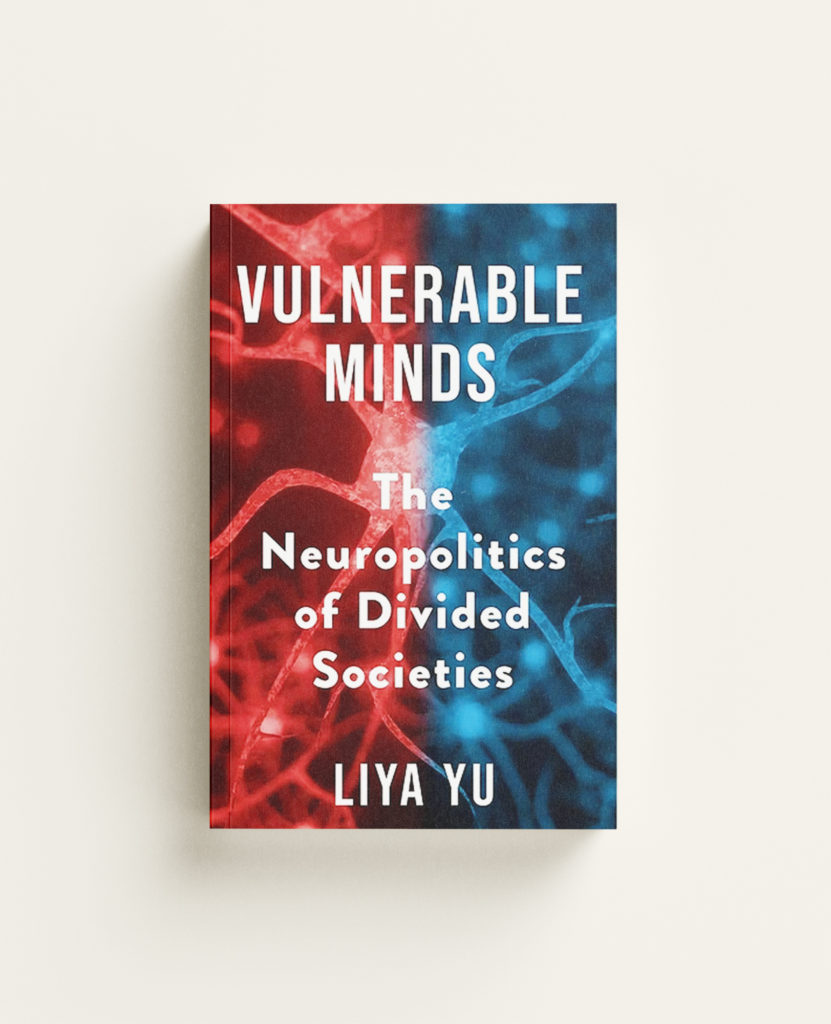Vulnerable Minds: The Neuropolitics of Divided Societies
(Columbia University, Press 2022)
Exclusionary identity politics are unravelling post-Cold War liberal democracies, yet there is little focus on what kind of cognitive conditions drive the recent shift towards nationalism, racism and intergroup identity conflicts. This book lays out how we need to radically reframe our current epistemological and normative assumptions about how we function neurocognitively in hyperdiverse and divided societies.
It is the first book to systematically theorize what the political neuroscience research of the last two decades on racism and identity exclusion mean for our current post-Cold War reality, making it a neo-Hobbesian attempt of pitching the social contract anew to those with whom we disagree with most in society.
It singles out dehumanization of others as one of the most significant disruptors of political cooperation in today’s liberal democracies. Dehumanization is presented as a universal human brain ability, which we might never be able to fully overcome, but have to learn how to manage and address as citizens, public representatives and activists.


The Routledge Handbook of Neuropolitics
(co-editing with Matt Qvortrup, forthcoming 2024)
A definitive guide to the new field of neuropolitics, with contributions from political scientists, political theorists, social neuroscientists and NGO leaders. Outlining how the big political questions of our time, from understanding voting behaviour to ideological preferences, to making sense of polarization, nationalism and racism, can be tackled through a paradigm shift based on insights into the workings of our socially evolved human brains.
